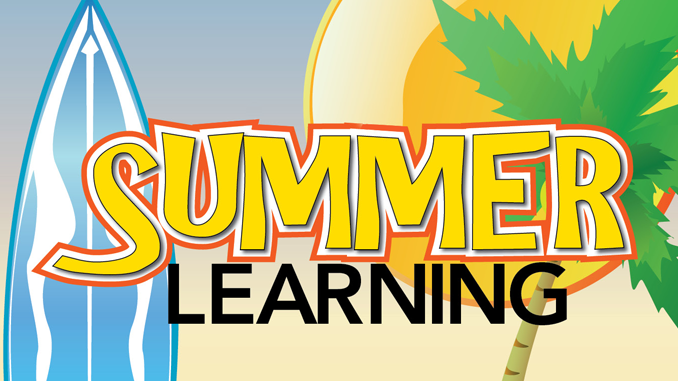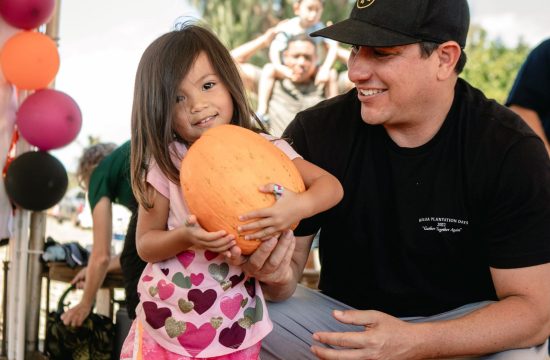Wondering how to help your child retain reading, writing and math skills she gained over the school year this summer without making it feel like work? Weave learning into daily errands and interactive activities found in your own backyard.
Summer is a great opportunity for parents to participate and come up with projects on their own and learn what their kids are interested in.
According to the National Summer Learning Association, students who don’t participate in any summer enrichment or educational activities lose about 22 percent of knowledge and skills gained during the school year. Teachers generally spend the first two months of school reviewing past material.
Help your children make the connection between what they learn in school and how the material relates to the real world. They’ll retain more of their new skills and grow into more engaged, enthusiastic learners.
Calculate tips.
Next time you and your family eat dinner out, help your child determine the tip when the bill arrives.
Grocery shop.
Dictate your grocery list to your child and have him keep track of the list. As you shop, talk about prices, sales and healthy choices.
Visit a farmer’s market.
Peruse seasonal produce native to Kauai. Ask about fruits and veggies you and your kids have never heard of before. Practice math skills by giving your child a list, a budget and some money to shop at the market.
Grow a garden.
Your child can learn more about her environment by cultivating her own fruits and vegetables. No room in your yard? Grow a container garden together. Your child can take pictures or make notes in a daily gardening notebook detailing the life cycle of the plant, any problems encountered and how she worked to solve those issues.
Cook together.
Involve your child in meal planning and preparation. Depending on your child’s age, put him in charge of a meal once a week.
Following a recipe also helps your child practice fractions and reading.
Play travel agent.
Thanks to the Internet, your child can easily research your family’s vacation or a hometown field trip. Give her a list of questions to answer about the location, cost and hours of a specific site she wants to visit. Continue the learning when you arrive at your destination.
Explore nature.
Apply what your child has learned in life science to your backyard. Talk about different birds, bugs, and how flowers and trees grow. Botanical gardens and nature outreach centers offer inexpensive classes and camps.
Go digital.
Got a bug or plant enthusiast? Have him grab the camera and go on a scavenger hunt for different species. When he’s done he can make a digital presentation of his discoveries. Many elementary kids know how to use multi-media even more than parents. They find it fascinating and think it’s fun.
Nurture creativity.
Art education enhances creative thinking, motor skills and social and emotional development. Have a splatter paint party on canvas in your backyard. Water color on textured paper. Make collages out of old magazines.
Journal.
Purchase an inexpensive journal or notebook that your child can personalize. Write a prompt or a question at the top of the page. Take turns writing messages and stories back and forth.
Read together.
Summer is the perfect time to help your child find books and magazines that match his interests. Read together or start an informal book club with your child and a few friends. Schedule an afternoon to discuss the selection over milk and cookies.
Practice time management.
Assign a weekly project for your children with a deadline to help them practice time management skills. They can select and research a specific topic, create a digital slide show about what they learned and then present it to you or extended family.








